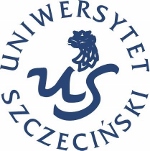Studies and researches
Vol. 10 Issue 1 - 6/2018
Performance Dissimilarities in the Activity of Foreign and Romanian-Owned Companies: What Lessons to be Learned?
Our paper addresses the activity of the
foreign-capital controlled companies versus domestic companies in Romania, in
order to highlight the differences in performance between the two categories of
firms, given the increased importance of foreign-owned companies in the
Romanian economy in recent years. The research and analysis are based on data
available from Eurostat FATS - Foreign Affiliates Statistics. The comparative
analysis of performance between foreign-owned and Romanian-owned companies is
carried out for the period 2008-2014 on two levels: (i) The total performance
of foreign-owned and Romanian-owned companies; (ii) The determination of the
“average”-sized foreign-owned and Romanian-owned company attributes. Our main
findings show that foreign-owned companies generate higher cash flows that are
essential for business development, backed up by a higher value of production,
higher turnover and higher gross operating profits, despite a higher number of
employees and higher personnel costs compared to Romanian-owned companies. At
the same time, Romanian-owned companies claim higher profitability ratios due
to their reduced dimensions.
Read more
Keywords:
performance, foreign-owned companies, Romanian-owned companies, foreign direct investment
JEL:
F23, L25, O10
performance, foreign-owned companies, Romanian-owned companies, foreign direct investment
JEL:
F23, L25, O10














